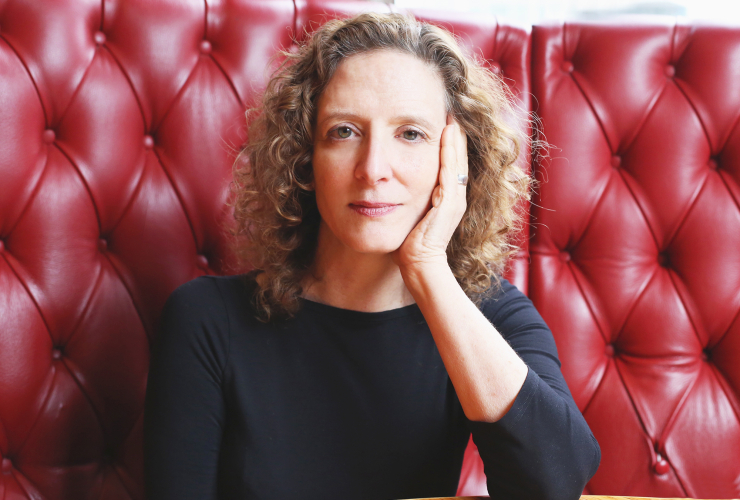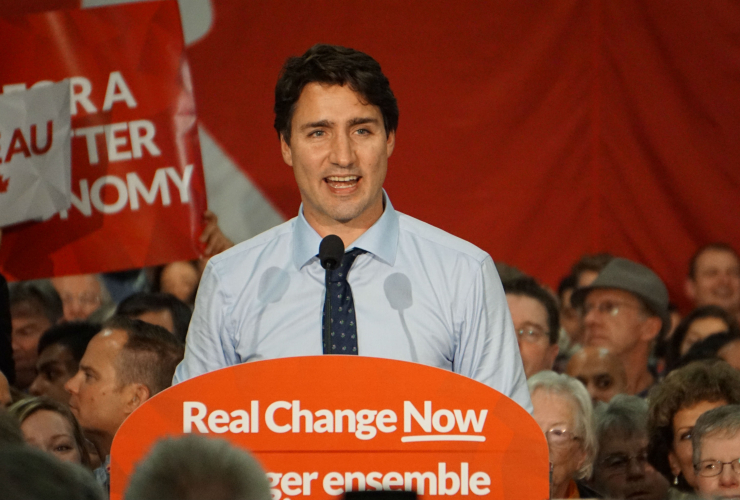For the second year in a row, a study ranking the best and worst cities to be a woman in Canada has put Victoria at the top of the country's gender equality pack.
The Canadian Centre for Policy Alternatives (CCPA) released its third annual women and cities report on Thursday, and found that the B.C. capital enjoyed the highest level of female representation in politics out of Canada's 25 largest cities.
Montreal, Vancouver and Toronto overall ranked sixth, ninth, and eleventh respectively, while the mid-sized Ontario city of Windsor dropped several places from its 2015 position to become the worst city in Canada to be a woman in 2016. The study considered gaps in men and women's access to economic and personal security, education, health and positions of leadership, among other indicators of gender equality. It found that Windsor has the highest percentage of women (24 per cent) living in poverty.
"Even though we are a developed country and life is fairly decent here for most people, there’s still a huge gap between what men and women experience,” CCPA economist Iglika Ivanova told National Observer. “A lot of people are convinced that the gender gap is a thing for our parent’s generation and that it’s been solved, but our report suggests that it hasn’t."
Female leadership and income equality need work
Gender equality has been in the spotlight in Canada over the last 12 months, said Ivanova, in part propelled by Prime Minister Justin Trudeau's gender-neutral cabinet and grand slam one-liner, "Because it's 2015," and in part propelled by inappropriate comments about women from U.S. Republican presidential candidate Donald Trump. But those conversations don't mean we're a trail blazer for female equality, she explained, arguing that despite all the rhetoric, Canada hasn't seen "too much improvement."
"What we find, for example, is that we have basically caught up on equal access to health and education on average, but where we haven't caught up is the representation of women in politics and senior management, as well as equal wages and violence against women," she explained.
"When you look at how many women are actually elected to Parliament, it’s record-high at 26 per cent. We are 50 per cent of the population, we are as highly educated as men, and yet, we don’t get elected and we don’t get into those positions or equal wages.”

Progress "uneven" in Canada
After the federal election in October last year, critics quickly pointed out that while Canada had indeed appointed a record 88 female MPs, it was only a one per cent improvement from 2011, and still fell short of the 30 per cent benchmark the United Nations suggests will lead to a shift in policy and practice in government. In 2015, Canada also ranked 30th of 145 countries around the world examined by the World Economic Forum for gender parity, below developing countries like Rwanda and the Philippines.
While the CCPA's report did not make international comparisons, it found that progress in Canada is "uneven" between cities. Municipalities in Quebec, for example, ranked well in the study (Montreal, Gatineau, and Quebec City are in the top six) due to better parental leave and childcare options, said Ivanova, while Windsor sunk to the bottom for having only one female city councillor, among other factors.
"The other thing that is interesting to me as an economist on the economic security front is that provincial capitals that have larger public sector work forces also tend to have lower gender gaps, because our previous research at CCPA has shown that in the public sector, wage gaps are lowest," she added. "So this is one area where we think the private sector should look at what the public sector is doing."
The study also aims to have Canadian cities learn from each other, she said, to answer questions like: Why do women fare better in politics in Victoria? What could we learn from Montreal about closing the wage gap? Which city is doing the most to create jobs for both men and women in a period of slow economic growth?
Victoria mayor proud of results
Victoria mayor Lisa Helps said she's proud of the results — for the second year in a row, the B.C. capital came out on top. Helps' council contains five women and four men, and in the last year or so, she said many of the city's municipal partners, including the Greater Victoria Chamber of Commerce, the Downtown Victoria Business Association, and the Economic Development Agency, have all taken on female CEOs.
It's made a difference in municipal relationships, she said, and already, there's more patience, empathy, and intuition in the workplace.
"I can tell you that they’re bringing those traits to their jobs and that is contributing to a greater collaborative working relationship,” she told National Observer. “Research shows that what the world needs right now for the most pressing opportunities and challenges of the 21st century are the kinds of characteristics female leaders bring.
"I don’t want to be too gendered about it — those characteristics can also be exhibited by men and it’s really powerful when men exhibit those. What’s most important to me is the kind of characteristics that leaders bring, whether they’re male or female."
Ideally, Helps said she would like to see 50-50 political representation for men and women across Canada.
This report was made possible thanks to reader subscriptions. Please subscribe today.







Comments